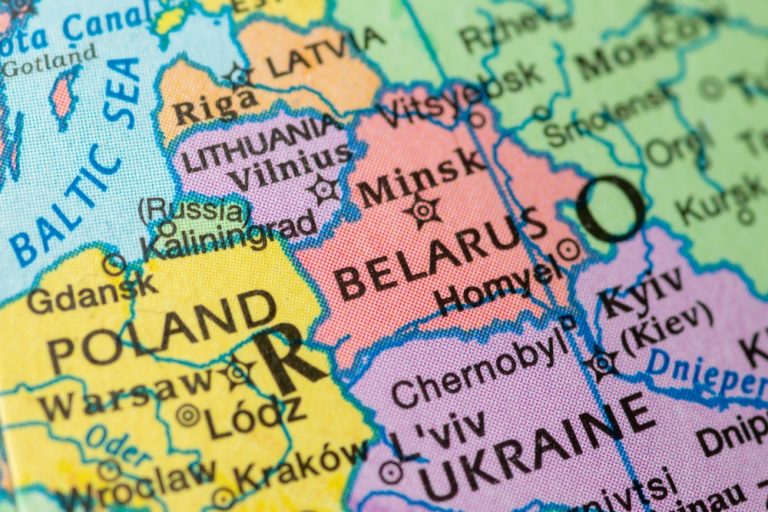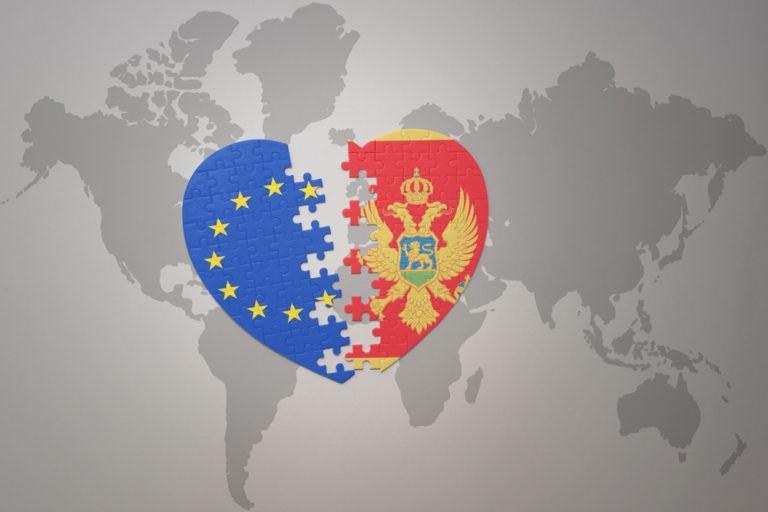
The “Western Balkan Quartet” vs. the “Serbian Peace”
On March 29, a meeting was held in Skopje with foreign ministers of Northern Macedonia, Albania and self-proclaimed Kosovo Bujar Osmani, Olto Jak and Kreshnik Ahmeti, as well as Đorđe Radulović, advisor to the Prime Minister of Montenegro, Dritan Abazović. The politicians publicly announced the creation of a new interstate bloc called the West Balkan Quartet, which caused a rather ambiguous reaction in the space of the “Serbian world”. What do these three countries have in common with separatist Kosovo? The answer is Albanians.
The news about the Quartet became known through Osmani’s post on Twitter. In the photo, the participants pose at the press table with the flags of the states and the name of the newly formed organization. In the post, Osmani succinctly mentions the establishment of the Quartet, and describes its goals as aligning countries’ policies with the European Union, especially “with democratic values and principles.” Three of the participants in the meeting are ethnic Albanians, and Djordje Radulović is a foreign policy advisor to the cabinet of Montenegrin Prime Minister Abazović, also Albanian. Milorad Dodik, the president of Republika Srpska, has already ironically called the organization the “Albanian Four“.
The first thing that catches the eye is the presence of a representative of unrecognized Kosovo among the invitees. The European curators are desperately trying to give the rebellious region as much subjectivity as possible, above all, in the eyes of the Serbs. On February 27, after a multilateral meeting in Brussels of EU diplomatic chief Josep Borrell, EU special envoy Miroslav Lajčák, Serbian president Aleksandar Vučić and Prime Minister of unrecognized Kosovo Albin Kurti, theses of a possible agreement between Belgrade and Pristina were made public. This predictably caused a wave of discontent in Serbian society. As early as March 18, in Macedonia’s Ohrid, the parties agreed to an “annex to the agreement” between Serbia and the unrecognized republic. On April 4, work began again in Brussels on implementing individual clauses of the agreement between the parties. The EU is in such a hurry to legalize Kosovo that they are publicly “pressuring” Belgrade and Pristina. European Commission spokesman Peter Stano said that the sides are obliged to abide by the clauses of the agreement and its annex. The appearance of Kosovo on yet another platform with recognized international actors hints at another step in the public recognition of Pristina’s separatists. It is possible that the “Western Balkan Quartet” may end up being a “stillborn child”, and this format was only intended to fix another fact of legitimizing Kosovo.

Returning to Dodik’s statement, one cannot help but note the well-founded fears of the Serbs. They go far beyond the impotent anger regarding the aggressive attempts of the West to remove Kosovo from Serbia. Thus, the Bosnian Serb leader took the news from Skopje as more than an act of support for Pristina. In his opinion, the “Western Balkan Quartet” has the outlines of a “Greater Albania”. The project was born by the works of Austria-Hungary back in 1911, and today almost 80% of Albanians support unification of the lands of historical residence into one national state. Against this background, Belgrade and Banja Luka are declaring even stronger cooperation with each other. In Serbia, the “Western Balkan Quartet” also raises questions about its parallel organization to the already existing “Open Balkan” format. Within this project, Albania, Serbia and North Macedonia agreed almost two years ago to develop interstate economic cooperation with the possibility of accepting other neighboring countries into the association as well. Peaceful and constructive by nature, the Open Balkan was literally undermined by the emergence of the Quartet. Serbia is also seeking to become a member of the European Union, but it was left out, creating a parallel association with the rebellious Serbian region. The Belgrade newspaper Politika rightly called the newly created bloc “a knife in the back” of the Open Balkan project.
Some Serbian analysts directly said that the “Quartet” was formed not only due to the patronage of the EU for Kosovo, but also to strengthen NATO in the region. The Serbs have long maintained a policy of military neutrality on the one hand. On the other hand, the Serbian people have been and still are largely pro-Russian. Obviously, this causes irritation in the West. Attempts to artificially increase the Albanian factor in the region only confirm the activities to suppress the “Serbian peace”. Are there any attempts to integrate the Serbian population into the Western Balkans? It is rather the opposite. Serbs in Kosovo, in their ancestral land, are subjected to the most severe discrimination and are gradually being pushed out of the province. Montenegrins have long been “molded” into an authentic nation through the technology of ethnic separatism, although the country has long bore the proud name of “Serbian Sparta“. The national identity of the Macedonians is still being argued. A separate discussion can be devoted to the Bosnian Serbs, who have grown to an independent state in the person of Republika Srpska. But for European alliance bosses and generals, “this is different,” so desperate (but legitimate) attempts to separate the republic from Bosnia are actively suppressed. In other words, the “Western Balkan Quartet” is not just an episode of legitimization of Kosovo, but a story of strengthening the Albanians for the geopolitical suppression of the Serbs.
For years the West was ready to turn a blind eye to crimes of Albanians in Kosovo, putting yesterday’s terrorists in leading posts of the unrecognized republic. European politicians don’t really want to talk about the fact that the Albanian mafia is the biggest drug dealer for Europe. And, of course, the EU and NATO, in their usual manner, are playing “one-at-a-time” democracy, applying the “practice of double standards”. For the West, Donbass is an integral part of Ukraine, while separatist Kosovo can and should gain independence. Artificial strengthening of the position of Albanians in the region against the background of the damage inflicted on Serbs for decades through the collapse of the Socialist Federal Republic of Yugoslavia (SFRY), wars and “allied bombings”, constant political pressure and speaking to Belgrade or Banja Luka in ultimatum language destroy the fragile peace and interethnic harmony in the Western Balkans. The Serbs themselves rightly believe that the regular interference of external actors in their lives has to end, and that only a “Free Balkans” can be the most useful project for the region without Western “democracy”.

